![]()
Mon, March 21, 2011 | Turkey Analyst, vol. 4 no. 6 | By Richard Weitz
Nuclear and Gas Pipeline Woes Trouble Russian-Turkish Energy Partnership
This article was first published in the Turkey Analyst (www.turkeyanalyst.org), a biweekly publication of the Central Asia-Caucasus Institute & Silk Road Studies Program Joint Center.
The nuclear disaster in Japan has further complicated the complex energy relationship between Turkey and Russia. Frictions persist over Turkey’s reluctance to support Russia’s South Stream pipeline project and become ever more dependent on Russian energy sources. Turkey has already become one of the largest Russian gas importers; natural gas accounts for the highest share of the Turkish-Russian trade turnover. Turkey’s dependence on Russian energy is a cause of concern among officials in Ankara. Diversification of energy partners would leave Turkey less likely to be manipulated by the Kremlin, which occasionally uses its energy exports as a political weapon. Turkey’s energy policy exemplifies its paradoxical relationship with Russia: while Moscow and Ankara engage in an intense partnership, including in the energy sphere, they simultaneously fiercely compete with one another — again, in the same energy sphere.
Background
Turkey has been trying to launch a nuclear energy program since the 1960s. The current Turkish government wants nuclear power to supply 20 percent of the country’s energy needs by 2030. One reason Turkish officials have been so keen to develop an indigenous nuclear power industry is to reduce Turkey’s reliance on foreign energy imports for 95 percent of its oil and gas. However, thus far the endeavor has only deepened their dependence on Russia.
When Russian President Dmitry Medvedev visited in Ankara last May, the Turkish and Russian governments signed a nuclear energy deal under which a Russian consortium led by nuclear plant builder Atomstroyexport and the electricity giant Inter RAO UES — which are both units of the Rosatom nuclear energy holding corporation, a state-owned monopoly — will construct Turkey’s first nuclear power plant in the southern Mediterranean in the port of Mersin in the Akkuyu area. The plant’s four Russian-designed VVER pressurized water reactors, to be built in pairs, will have a planned aggregate capacity of 4.8 GW, which would make the plant one of the largest in the world. Construction work on this $20 billion project is scheduled to start in 2013, with the first reactor generating power by 2018. On December 15, 2010, Russian Deputy Prime Minister Igor Sechin said that the Rosatom Corporation would operate the plant in Akkuyu for 60 years.
Although Turkish governments have not encouraged a comprehensive public debate over the issue, many Turks have opposed constructing an indigenous nuclear power system due to its high cost and fears of environmental damage. The nuclear disaster at Japan’s Daiichi complex in Fukushima following the devastating earthquake and ensuing tsunami has evoked renewed opposition among Turkish environmentalists to the proposed Russian-Turkish nuclear power plant. “It is a mistake to go nuclear after what has happened in Japan,” Uygar Özesmi, Greenpeace’s Mediterranean director, said. “In a quake-prone country like Turkey, you cannot launch a nuclear power industry.” The president of neighboring Greece, Karolos Papoulias, has also asked Turkey to reconsider its nuclear plans. The Anatolian tectonic plate is squeezed between two other plates — the Eurasian one to the north and the Arabian plate to the west. This generates many small and medium earthquakes and occasional large ones. In 1999 two large earthquakes in the industrialized Marmara Region killed tens of thousands of people.
However, despite the Japanese disaster, which has led several countries to reconsider their nuclear plans, the Russian and Turkish governments have renewed their commitment to the project. President Medvedev assured Turkish Prime Minister Recep Tayyip Erdoğan, during his two-day stay in Moscow last week, that Russia would construct a nuclear plant that could withstand powerful earthquakes. Attending a business forum in Moscow on March 15, Erdoğan said that, “We want to start this as soon as possible. Everything is ready.”
“There is no investment without risk,” Erdoğan explained earlier to reporters. “We have to know that aside from its beautiful aspects, the modern world has many troubles,” he added. “There are, for example, issues related to cosmetics. Yet nobody gives them up.” The Turkish Minister of Energy and Natural Resources, Taner Yildiz, who accompanied Erdogan to Russia, said that Turkey’s nuclear power plants would use third-generation reactors and not the obsolete first-generation at Japan’s troubled Fukushima plant. “The earthquake that occurred in Japan will not affect our plans for the construction of two nuclear power plants,” Yildiz said in an interview with Turkey’s NTV channel. “We should learn lessons from the tragedy that Japan has faced, and we are working in this direction.”
Turkish policy makers have also reaffirmed interest in having the Japanese companies Toshiba and Tokyo Electric Company (TEPCO), which operate the Fukushima plant, build Turkey’s second nuclear power plant in the Black Sea port of Sinop. The Japanese government has agreed to finance the project for the Turkish government as long as Japanese firms would build it.
Implications
Tensions between Turkey and Russia persist over Ankara’s failure to approve the construction of the undersea section of the South Stream gas pipeline project. Russian officials have been pushing Ankara to back the $11-billion South Stream pipeline project, supported by Russia’s state-run energy company Gazprom and Italy’s state-run energy corporation ENI. It would complement the Russia-Turkey Blue Stream oil pipeline by also running under the Black Sea, delivering natural gas from Russia and Central Asia directly to Southeastern Europe. The initial capacity of the 900-kilometer pipeline, which was planned to become operational in 2015, would be 31 billion cubic meters, a quantity that would eventually double to 63 billion. The pipeline’s route would traverse Turkey’s underwater economic zone, come ashore in Bulgaria, and then split into two branches that would terminate in Italy and Austria. Moscow’s goal in this endeavor is to bypass Ukraine.
During Putin’s visit to Ankara in August 2009, Turkish officials gave Gazprom the right to explore in Turkey’s Exclusive Economic Zone to determine where they might construct the South Stream pipeline. When Erdoğan visited Moscow in January 2010, he said that his government would decide whether to proceed with South Stream by November 10, pending favorable results from an environmental impact assessment and geological and seismic studies. Russia has already signed intergovernmental agreements with Austria, Bulgaria, Croatia, Greece, Hungary, Serbia, and Slovenia to build the pipeline’s overland section, but Turkey’s failure to give its approval for a permit has led Russian policy makers to announce that they are considering alternative concepts. Russian Energy Minister Sergei Shmatko said that his country could construct a liquefied natural gas (LNG) plant on the Yamal Peninsula in Russia’s north, and then convey the LNG by ship. “We’re not hostages of one situation for sure,” Shmatko said. “We’ll have several alternative options to supply gas directly to European consumers.”
The higher costs of these alternatives leads one to suspect the Russians are simply trying to pressure Ankara to give their approval for the project. This maneuvering reflects the unease of some Turkish analysts about deepening their country’s already heavy dependence on Russian energy supplies. Turkey is one of the largest Russian gas importers and natural gas accounts for the highest share of the Turkish-Russian trade turnover. Russia currently supplies almost two-thirds of Turkey’s natural gas consumption (which provides most of Turkey’s electricity) and one-fifth of its domestic oil needs. Turkey also purchases coal from Russia and Turkey’s proposed nuclear power program would rely on Russian-made reactors, reactor fuel, and other items.
The Turkish government would also like Gazprom to eliminate or relax its “take or pay” provision, which require Turkey and other customers to import a minimum amount of gas at fixed prices, regardless of possible shortfalls in demand, or pay certain penalties. A few years ago, Turkey had to import more gas than it needed and at higher prices than Azerbaijan and several other suppliers charge. Turkey wants Russia to give Ankara more flexibility on the size of its purchases, the price Turkey pays, and the right to re-sell gas purchased above Turkish domestic needs on third markets.
During Erdoğan’s recent visit to Moscow, Medvedev said that Russia wanted to stick to the principle of “take or pay” of gas export monopoly Gazprom’s long-term supply contracts, but did not rule out some adjustments to take into account market conditions, such as the recent global depression. “We intend to maintain our existing approach, but … we have told our Turkish partners that in certain cases, we are willing to consider other approaches,” Medvedev explained. “This is a question that should be resolved on the basis of existing contracts and the goodwill of both sides.”
European governments have instead been pressing Ankara to join the EU-backed 3,000-km Nabucco pipeline project, which would transport natural gas directly from the Caspian and Middle East regions through Turkey and the Balkans into Central Europe. From this perspective, Nabucco serves as a complement to the Baku-Tbilisi-Ceyhan oil pipeline, built in 2005, which transports Caspian oil directly to the Mediterranean, not through Russian territory. Although the Turkish government remains committed to Nabucco, financial and other problems continue to impede its construction. Nabucco would be twice as long as Baku-Ceyhan, cost three times as much (over $11 billion), and has not even started construction despite being proposed in 2002.

Russian president Dmitry Medvedev (L) Shake hand with Turkish PM Recep Tayyip Erdogan over nuclear energy deal (May 2010).
Conclusions
Energy relations between Russian and Turkey have long been characterized by overt friendship and subtle competition. Turkey and Russia’s energy goals coincide insofar as each wants to benefit from the transport of energy supplies into central Europe. Although frictions have risen over which country should assume the lead role in supplying Central Asian gas to European importers, even serving as a transit country for a Gazprom-led effort would benefit Turkey by generating millions of dollars in transit fees, reducing tanker traffic through Turkey’s overcrowded and environmentally threatened Bosphorus Strait, and perhaps enhancing Ankara’s leverage over Moscow by increasing Russian energy companies’ dependence on traversing Turkish territory to reach international markets.
Yet, Turkish policy makers do not welcome their dependence on Russian energy sources, and have sought to pursue energy projects not dominated by Moscow. In particular, they have lent support to the troubled Nabucco pipeline and a nuclear energy program supported by multiple foreign partners. Turkish energy experts have also called for greater use of hydroelectric power. Pending the development of alternative sources of energy, Turkish officials hope to be able to use their country’s geographic position to develop Turkey not only as an energy corridor, bringing gas and oil from the Caspian, Middle East and Russia to the European grid, but into an energy hub in which Turkey would have considerable influence over where and under what conditions to supply Eurasian energy to foreign countries. Not only would such a status enhance Turkey’s regional leverage, but it would allow the country to accrue greater revenue.
Richard Weitz, Ph.D., is Senior Fellow and Director of the Center for Political-Military Analysis, Hudson Institute.



 RSS
RSS

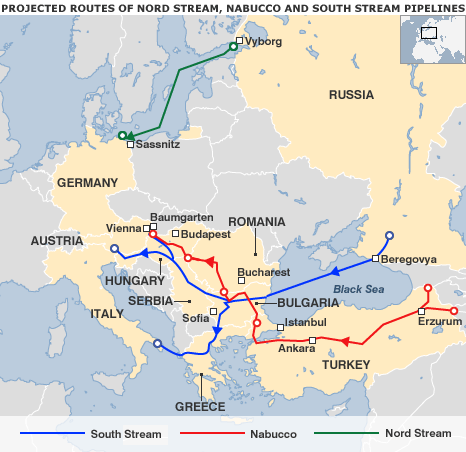
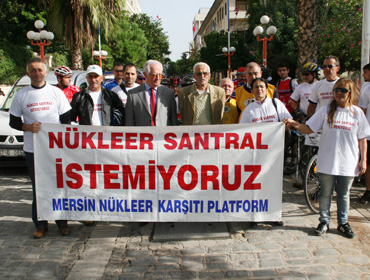
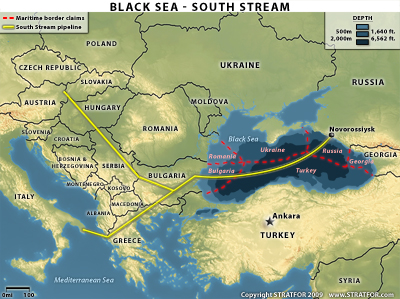
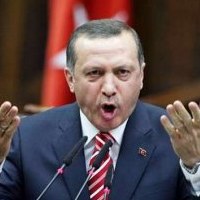
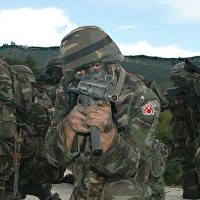

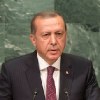
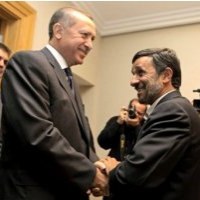




#Nuclear and #Gas Pipeline Woes Trouble Russian-Turkish Energy Partnership | #Russia #Turkey http://j.mp/ffiVHO
njslea Nuclear and Gas Pipeline Woes Trouble Russian-Turkish Energy …: News, Articles, Opinion… http://bit.ly/eANKEN thejerichomarch
RT @CrethiPlethi: #Nuclear and #Gas Pipeline Woes Trouble Russian-Turkish Energy Partnership | #Russia #Turkey http://j.mp/ffiVHO
Nuclear and Gas Pipeline Woes Trouble Russian-Turkish Energy Partnership http://j.mp/ejJcM7 #Turkey #Russia #energy